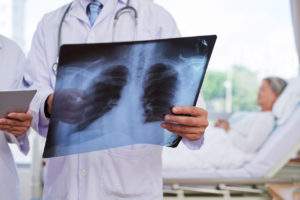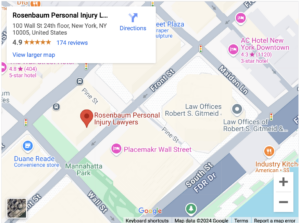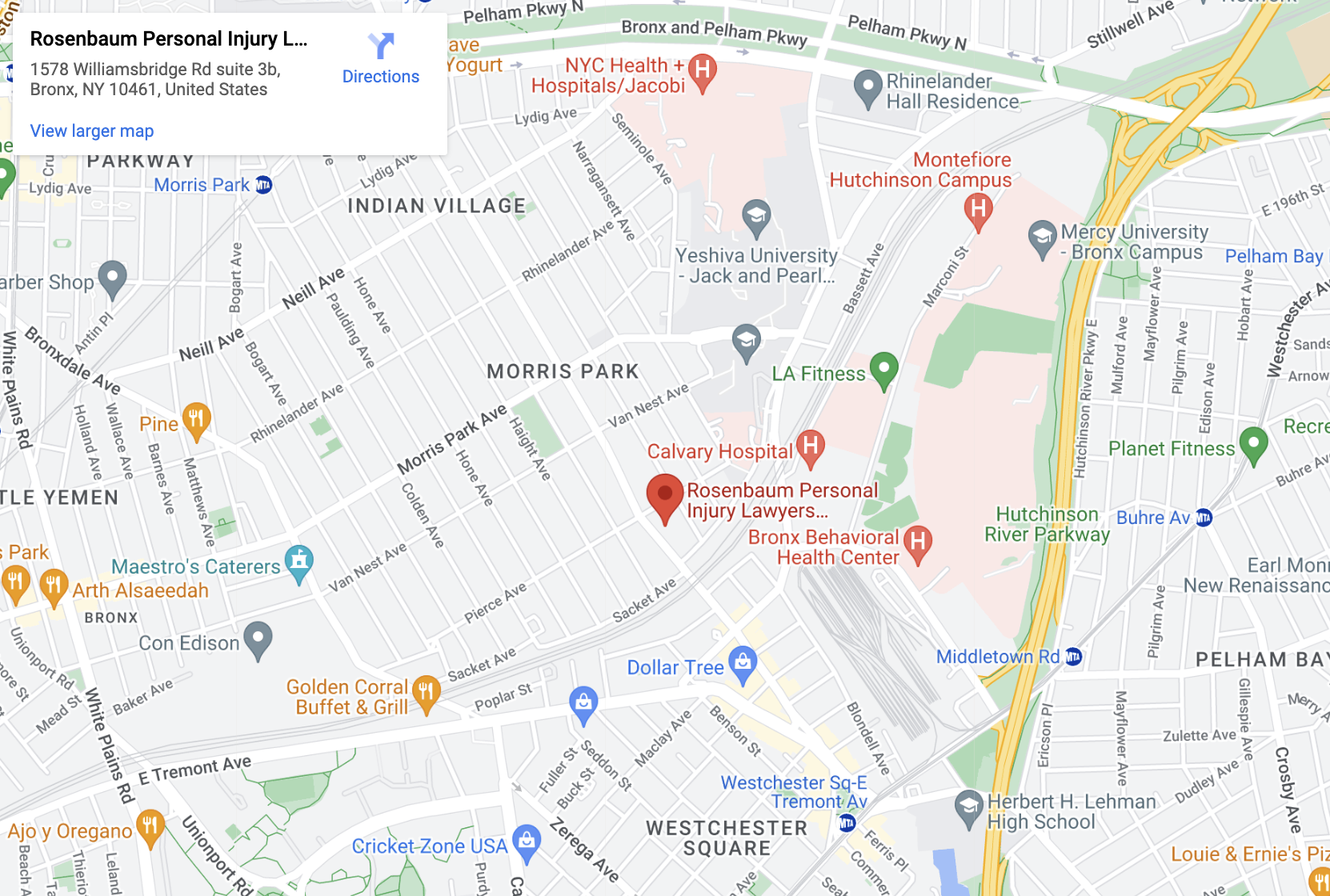Chest Injuries

Almost all car accidents involve a minor chest injury. When a car hits you, your chest will hit your seat belt, steering wheel, or airbag. When it does, you could bruise your chest or even break a rib.
But some accidents can cause much more severe chest injuries. A serious collision or fall could result in life-threatening damage to your heart or lungs.
Here are some facts about chest injuries and what you can do to recover compensation for them.
Table of Contents
Overview of Your Chest

Your chest includes everything between your head and your abdomen. Your ribcage protects your chest. You have 24 ribs. All of these ribs connect to your spine through ligaments.
The top seven ribs on each side attach to your sternum through cartilage. The next three ribs on each side attach to the sternum through the cartilage holding the top seven ribs. The bottom two ribs only attach to your spine and do not attach to the sternum.
Several large muscles connect to your ribs. Some of the major chest muscles include the pectoralis major over the front of your ribs, the serratus anterior holding your ribs to your shoulder blade, and the intercostals that sit between the ribs.
These muscles help you move your arms, shoulders, and chest. With the diaphragm, these muscles also help you breathe.
The chest protects two of the most important organs in your body — your heart and lungs. Your heart pumps blood through your body. If your heart stops beating, you will suffer brain damage within four minutes, even if paramedics successfully resuscitate you.
Your lungs inhale oxygen and exhale carbon dioxide waste gas. Oxygen is essential for cell metabolism. Without oxygen, your tissues immediately begin to die.
How Do Chest Injuries Happen?
Chest injuries usually fall into three categories:
Blunt Force Injuries
A blunt force impacts your chest without penetrating the skin. Getting hit by a car in a pedestrian accident or falling off a ladder in a workplace accident could result in a blunt force injury.
Penetrating Injuries
Penetrating injuries result from something hitting your chest and penetrating the skin. These types of chest injuries can threaten your life because the open wound can become infected. The wound also creates an opening where air can rush into your chest cavity, causing your lung to collapse.
Blast Injuries
Explosions create a wave of pressurized air. This blast wave can injure you due to the difference in pressure between the air in your lungs and the high-pressure wave. The explosion squeezes your chest and can damage your lungs the same way that squeezing an air-filled balloon can burst the balloon.
What Are the Different Types of Chest Injuries?
Because of the many structures in your chest, chest injuries can take many different forms.
Chest Sprain or Strain
A chest strain happens when the muscles or tendons in your chest get stretched or torn. This usually happens when you hyperextend the muscles. Since your ribs flex, you can hyperextend your intercostal muscles with a hard blow to the chest.
Symptoms of a chest strain include:
- Pain
- Swelling
- Muscle weakness
- Muscle spasms
A chest sprain happens when you stretch or tear the ligaments holding the ribs to the spine. Symptoms of a chest sprain include:
- Pain in your back when breathing
- A popping sound or sensation when you got injured
- Swelling
- Bruising
Strains and sprains heal over a few weeks with rest and ice. Doctors rarely operate to repair a strain or sprain. A severe sprain or strain might require physical therapy for you to regain your pre-accident strength and flexibility.
Dislocated Ribs
If the cartilage in the front of your chest or the ligaments in the back of your chest get stretched or torn, a rib can move out of place. A dislocated rib can cause pain when breathing, twisting, or bending. You may also see bruises from blood vessels that broke when the rib dislocated.
A dislocated rib will take time to heal. Cartilage and ligaments heal slowly, so you might experience pain for several months. In most cases, the pain will subside once the cartilage and ligaments heal enough to hold the rib in place.
Fractured Ribs
A powerful force on your chest can fracture a rib. Normally, doctors immobilize a fractured bone with a cast or brace so it can heal without any stress on it. But since ribs must move for respiration, doctors cannot immobilize broken ribs.
Doctors now recommend against taping the ribcage or applying a compression wrap because it can impede breathing and increase the risk of pneumonia. Instead, doctors will prescribe rest and limit your activities for six to eight weeks to allow the broken ribs to heal.
Collapsed Lungs
The chest wall must maintain a low-pressure environment so the lungs can expand. If air or fluid presses on the lungs, you will struggle to inhale.
Pneumothorax happens when a penetrating injury allows air to enter the pleural space. The pressure of the air in the pleural space causes the lung to collapse and prevents you from re-inflating it. Imagine trying to blow up a balloon while someone sits on it.
Hemothorax also results in a collapsed lung. But hemothorax happens when internal bleeding fills your pleural space with blood. The pressure of the blood on the collapsed lung prevents you from inhaling.
A collapsed lung requires emergency treatment so the lung can re-expand.
Cardiac Tamponade
The pericardium surrounds the heart. It protects the heart from rubbing against other organs that could wear it down.
A chest injury can cause fluid to fill the pericardial sac. The pressure of the fluid squeezes the heart. As a result, the heart will produce a muffled and irregular heartbeat. Cardiac tamponade can cause death without treatment.
What Compensation Can I Recover for Chest Injuries?
To get compensation for your chest injury, you must prove someone else’s negligence caused your injury. This means someone acted in an objectively unreasonable way. A motorist who runs a stop sign was probably negligent. A store that fails to clean up a spill after being informed by a customer was also negligent.
Contact a New York City Personal Injury Lawyer for Help
If you can prove negligence, you can seek compensation for your medical bills, lost wages, physical pain, and mental suffering. To discuss your chest injury and the compensation you can seek, contact a New York City personal injury lawyer.



